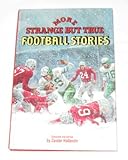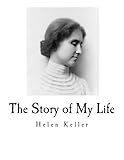Guess What? There Are Twelve Kinds Of Rainbows!
Language
Reading Level
Listen to Article

Remember ROY.G. BIV (red, orange, yellow, green, blue, indigo, violet), the mnemonic that helped you to memorize the order and colors of the rainbow? Well, you can forget it because as it turns out, not all rainbows are equal. They can vary drastically depending on the conditions under which they occur. A team led by atmospheric scientist Jean Ricard of the National Centre for Meteorological Research in Tolouse, France, has identified twelve rainbow 'flavors,' each with its own distinct characteristics.
As you probably know, for a rainbow to form there has to be sunlight and rain. As the white rays of the sun encounter the raindrops, they bend, a phenomenon we call refraction. But since the seven colors that make up white light have different wavelengths, they bend at different rates and disperse, resulting in a rainbow.

Given that white light always comprises the same colors, it was natural for scientists to assume that all rainbows are the same. They believed that the only reason we are sometimes unable to see all the colors is because of the angle at which we view the rainbow and the size of raindrops. They, therefore, classified them based on those two criteria. However, the broad categories did not include all the different kinds of rainbows that we encounter - Something Ricard and his colleagues wanted to rectify.
The team began by identifying the four characteristics that can encompass all rainbows. There is, of course, the classic rainbow with the red band on top and the blue-violet on the bottom. Then there are the ones with the Supernumerary bows - Bright bands either at the top or bottom. In between some rainbows, you might notice Alexander’s bands, dark areas caused by less light being reflected. And finally on occasion, one may be lucky enough to witness a 'double rainbow' - One that features a normal bow and a second, fainter bow above, except with the colors reversed. Armed with this knowledge the team began analyzing hundreds of rainbow photos and grouping them in one of the four categories.

In addition to identifying 12 distinct rainbows, Ricard and his team also stumbled upon another discovery. They found that while the angle and size of raindrops do matter, the biggest determinant of rainbow colors is the sun's distance from the horizon. If the sun is further up in the sky, the colors will be largely blue and green. If it is closer to the horizon, only the red and orange will be visible.
This is because the colors have different wavelengths. Red that has the longest wavelength, scatters less in the atmosphere and is, therefore, more apparent when the sun is lower in the sky (during sunrise and sunset). Blue and green, on the other hand, have the shortest wavelengths and hence appear the most prominent when the sun is overhead.

Sounds confusing? It may be helpful to think of why the sky is blue, instead of red. Since blue light has a shorter wavelength, when it strikes molecules in the atmosphere, it scatters and becomes most visible in the sky, while colors with longer wavelengths like red, orange, and yellow, continue to travel without being interrupted by the particles.
Ricard's new classification system categorizes rainbows based on the following characteristics: number of colors, clarity, and the presence or absence of Alexander's Bands and Supernumerary bows. The researcher, who presented his findings at the American Geophysical Union in San Francisco, California, this past December, believes the simple categories will make it easy for both experts and novices to identify the kind of rainbow they are witnessing. Who knew rainbows were so complex?
Resources: livescience.com, dailymail.co.uk,science.odu.edu,earthmagazine.com, quora.com, creativecommons
Cite Article
Geography
Learn Keywords in this Article
808 Comments
- chathenaabout 7 yearsSo cool!
- Alannaabout 7 yearsThis is a very interesting discovery, I have to say! Good work.
- wowabout 7 yearswow
- ITSFUNNEH FANover 7 yearswow
- snoopover 7 yearswow
- Hershyover 7 yearsdo you like donuts
- KitKatover 7 yearsIf this is true then why did I see a rainbow with all those colors during the evening when it's completely cloudy out should I not have seen the purple, green and the blue colors?
- pokemonloveralmost 8 yearsThey are circles, did u know that?
- lailacat46almost 8 yearswow. i knew all of this kinda
- joshalmost 8 yearsgta 5 is the cool game in 2016 cooooooooooooooooooooooooool



